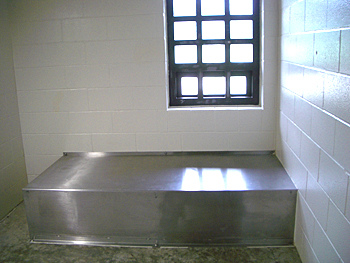
 By: Heidi Altman, Legal Director, CAIR Coalition
By: Heidi Altman, Legal Director, CAIR Coalition
CAIR Coalition staff first met Luis* in September 2012 in a rural jail in Virginia, where he sat awaiting his immigration court hearing. Several months later, in January 2013, we celebrated with him when two dedicated attorneys at the law firm of WilmerHale agreed to represent him on a pro bono basis. Then, in July, we shared his deep disappointment when the Immigration Judge ordered him deported. We agonized with him and his attorneys as he struggled to decide whether he could withstand many more months in detention in order to pursue his appeal. Now, more than one year after our initial meeting, we are happy and relieved for Luis that the Board of Immigration Appeals has overturned the Immigration Judge’s decision. Finally, Luis expects to be released from immigration custody and reunited with his family any day now.
At CAIR Coalition, we celebrate and mourn with our clients and our pro bono partners through these highs and lows. And at the conclusion of Luis’s roller coaster of a case, I thought I’d take a moment to reflect on what his story reveals about this complex, challenging, and often inhumane system in which we work.
First, my colleagues at CAIR Coalition and I are grateful to Marina Torres and Susel Koepke, the pro bono attorneys who stood by Luis and persevered even in the face of a negative decision at the immigration court level. Luis’s good fortune at having Marina and Susel on his side, however, brings to mind the many men and women – about 60% of those in immigration detention[1] – who cannot find anyone to represent them as they defend themselves against deportation. Immigration law can be so complex that I sometimes read higher court decisions three, four, or five times before I have a grasp on the legal outcome. And I am a native English speaker with a J.D. and years of experience practicing immigration law. Imagine if Luis had been left to pursue his appeal on his own. Would he have found the right legal precedents to support his claim? Known the correct legal standard, or even known where to look to find it?
Second, I am as overjoyed for Luis’s imminent freedom as I am saddened at all he has lost in the more than one year he sacrificed to fighting his deportation from a remote immigration jail. Luis has maintained his Lawful Permanent Resident status since he was 17 years old, coming to the U.S. to join his father and brother. In the more than 15 years since, he made a life for himself. He helped another brother settle in the U.S. and worked hard to establish his own successful business. He also accrued a history of convictions for minor non-violent offenses – including unlicensed driving, one incident of driving under the influence, and one conviction for identity theft stemming from an incident in which he displayed his cousin’s driver’s license to the police when asked to show his own. The Immigration Judge found this arrest history sufficient to outweigh Luis’s years of residence and contribution to the United States. Thankfully, the Board of Immigration Appeals disagreed, finding Luis deserving of “one last chance” in the form of a waiver of deportation called “cancellation of removal.”
We celebrate this victory, but also imagine what it must mean to Luis to have given more than one year of his life to secure it. Behind bars, first in Virginia and then in Alabama, Luis could not maintain the business he’d worked so hard to build. His most cherished relationships – with his wife, brothers, father, co-workers, friends – were all interrupted. His life put on hold. Although he had already served the sentence required of him by the criminal justice system for his misdemeanor convictions, he endured a second – and much more severe – punishment in the form of the nominally civil immigration detention system. Many people in his shoes would have made the decision (quite rationally) to give up and accept the reality of deportation. But for Luis, his life in the United States was worth the fight.
I am humbled by Luis’s spirit, grateful to his pro bono attorneys, and dispirited by the many injustices in the immigration system that his case reveals. As always, there are many men and women in Luis’s situation today who are desperately in need of counsel. If you are an attorney, please consider taking the case of one of the many individuals in immigration detention in need of counsel.
*pseudonym used to protect privacy
[1] New York Immigrant Representation Study Group, Accessing Justice II: A Model for Providing Counsel to New York Immigrants in Removal Proceedings, at 11 (December 2012).
